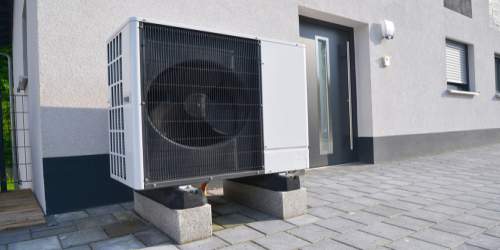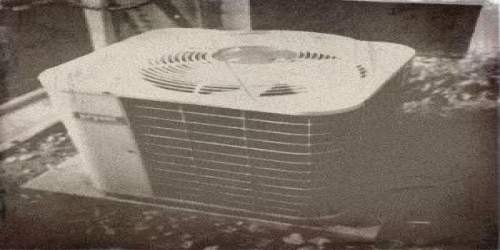Read Time : 4 Minutes
What is a Geothermal Heat Pump
Geothermal heat pumps are also known as ground source heat pumps, and it can work as an excellent form of central heating for your home. It’s a much greener way to produce heat, and it can really save you money on your energy bills as well. Of course, installation can come with a hefty price tag as well. Before you make any decisions about this great and efficient form of heating, however, make sure you read this excellent little guide.
What is a Geothermal Heat Pump?
The star feature of a geothermal heat pump is the pipework that makes it up. Usually, there is around 100m of it, all of which is buried in loops in trenches, or sometimes in on (or more) vertical boreholes. Once the pipework has been buried, it is possible for the surface of the disturbed ground to be returned to use for its original purpose. So it doesn’t matter if you bury it under a driveway, garden, or even a field. Plus, the process is done so that you would never even know the pipe was underground, so there is no disturbance to the land past installation.
Liquid is pumped through the piping, and this works to absorb the warmth that can be found in the ground. Typically, this liquid will be antifreeze, but there are others that can be used. A compressor that can be found in the main unit of the heat pump will raise the temperature of the fluid before a heat exchanger transfers the heat to a separate body of water. After this, it circulates around the central heating system and the water, now cooled, is then pumped back out to the buried piping. Once this is done, the cycle repeats itself constantly to keep your home warm.
However, it should be noted that the geothermal heat pump does still generate carbon emissions because the entire system uses electricity as a source of power. On the plus side, the emissions that are produced are less than those associated with conventional forms of heating. It is also possible to connect it to a renewable source of energy, such as a wind turbine, in order to produce power.
COMPARE PRICES FROM LOCAL INSTALLERS
Compare prices from local companies fast & free
Enter your postcode to compare quotes from leading professionals. We promise to keep your information Safe & Secure. Privacy Policy
Geothermal Heat Pump Systems
There are two main types of geothermal heat pump system that you can have installed. These are the horizontal and vertical systems. The one that you have installed depends on the amount of space you have available, as both are installed underground.
The horizontal systems tend to be laid in a shallow trench over a much wider surface area than their vertical counterparts. This is the option to go for if you have a lot of space. The vertical system buries the pipes in a vertical borehole (or boreholes). These can be anywhere from 15m deep to 100m deep – depending on your personal requirements.
It is essential to remember that you ensure the system is the correct size for your home and your personal needs, regardless of the one that you require.
Is Your Home Suitable?
When it comes to determining whether or not your home is suitable for the installation of a geothermal heat pump, there are a few things that you should be taking into consideration first.
#1 The size of your garden. You will need a good amount of space in your garden, or the outside area, to support the ground loop and pump. You will also need to be able to provide access for digging machinery. Your installer will be able to offer the best advice.
#2 Your current heating system. Underfloor heating is the best form to have when you are using a geothermal heat pump. This is because they produce a low-temperature heat, and so they are unlikely to achieve the same levels of heat you will be used to from your boiler powered central heating.
#3 The insulation of your home. You should ensure that your home is well insulated and as energy efficient as possible before carrying out the installation. This is because you will want to make the most of your geothermal heat pump, and by letting heat escape through a poorly insulated home, you will be paying to waste warmth and energy.
#4 The existing fuel system. You will be able to make greater savings if you replace an old heating system, or an expensive one, than if you are connected to mains gas.
#5 Water heating. For this, you may need a separate electric immersion heater.
The Cost of Geothermal Heat Pumps
To install a geothermal heat pump, you can expect the cost to be around £13,000 on average. The running costs per year are estimated to be around £655 per year, depending on the size of your home and how often you use it. Prices may also vary if there is additional work required for installation and such.
The type of fuel that you will be replacing plays a huge part in how much you will save. If you take a look at the table below, it can give you a good estimate based on a four bedroom detached house.
| Fuel replaced | Savings £/year | Savings CO2/year |
|---|---|---|
| LPG | £1,260 | 2600kg |
| Electricity | £1,420 | 4700kg |
| Oil | £620 | 4600kg |
| Solid fuel | £230 | 7200kg |
It can also be tricky to predict the payback period, as this is also dependent on things like the type of fuel that you will be replacing, as well as the size of your home. In addition to this, it will also depend on whether or not you qualify for incentives like the Renewable Heat Incentive (RHI), and also how you will be using the heat.
The RHI incentive is there to provide you with a little extra financial help. If you decide to enrol for the scheme, it is estimated that you will be provided with an additional £2,000 to £4,000 per year. This fantastic incentive is something that could definitely help when it comes to bringing in a little extra income.
Maintenance
The great thing about geothermal heat pumps is that the maintenance is actually incredibly minimal. The system is closed and airtight, so it is tightly sealed, hence the need for very little maintenance. However, an annual service and general check of the pump is strongly advised, just to make sure that everything is in working order.
It is important that you remember to always ask your installer to show you how to adjust the control and features while they are setting the system up. You should also ensure that they provide you with a manual so that you know what you are doing once they leave. This means that you won’t need to contact them and call them out if you end up stuck. You will also have better control of the system. The heat pumps themselves tend to last for around 20-years, and the ground collectors have an expected lifespan of 70-years, which is pretty fantastic.
However, if something does happen or go wrong at any point, make sure you do call out an engineer. You should also ensure that they have an F Gas certification, making them qualified to deal with your heat pump. This way you are guaranteed that they know they system and what they are doing.
Want to Know More?
Have you found yourself interested in geothermal heat pumps? If you want to know more then simply give us a ring using the number at the top of this page and have a chat.
Find a local installer
Welcome to the biggest directory of UK renewable energy companies





 How does a Heat Pump Work
How does a Heat Pump Work








